Help me find this menu "open file in browser"
-
@PeterJones There is no need to make additional lines, they are there but they do not work in all languages))
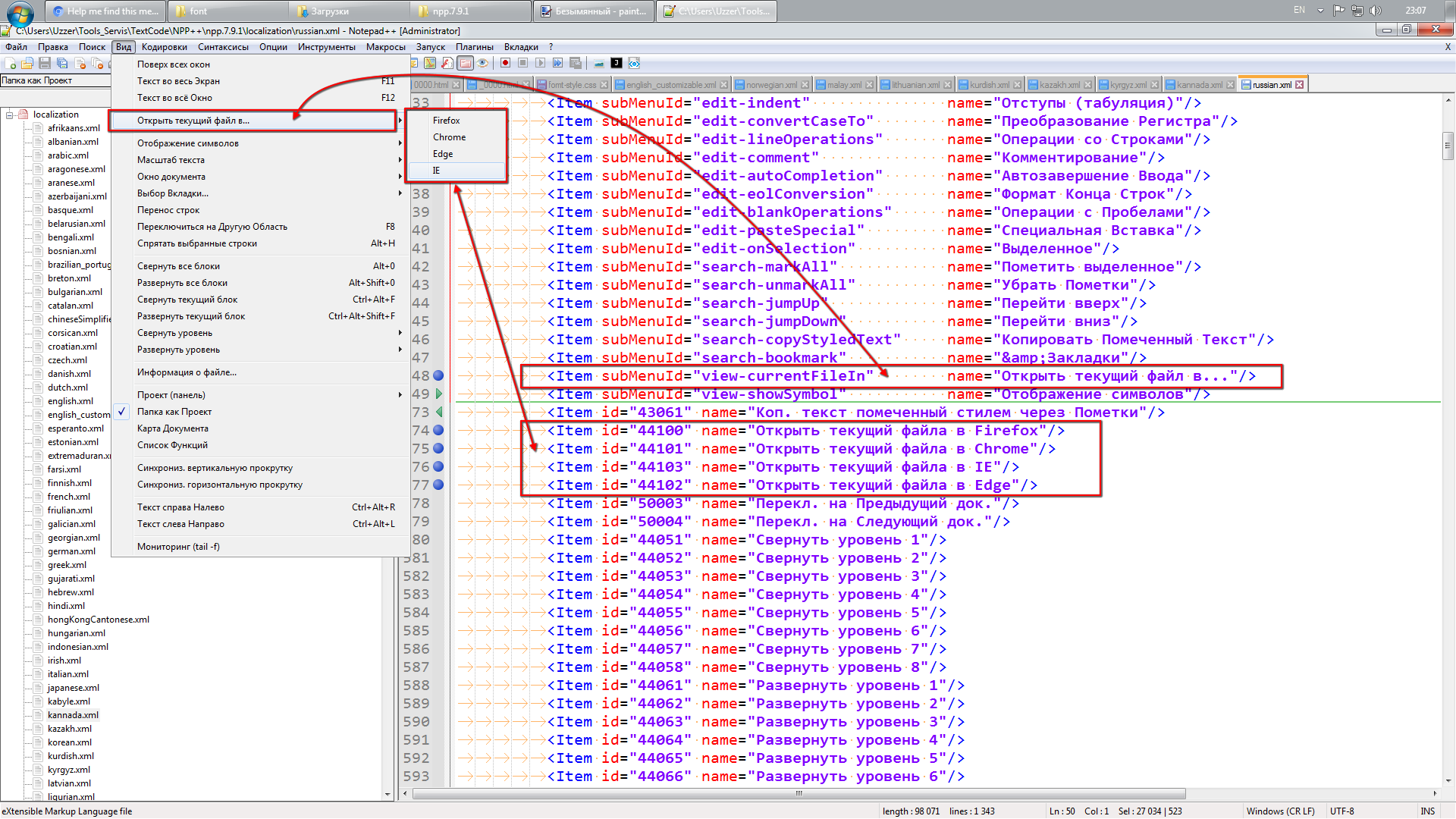
-
@PeterJones We need to put these lines in the
<Commands>block
This must be done for all languages!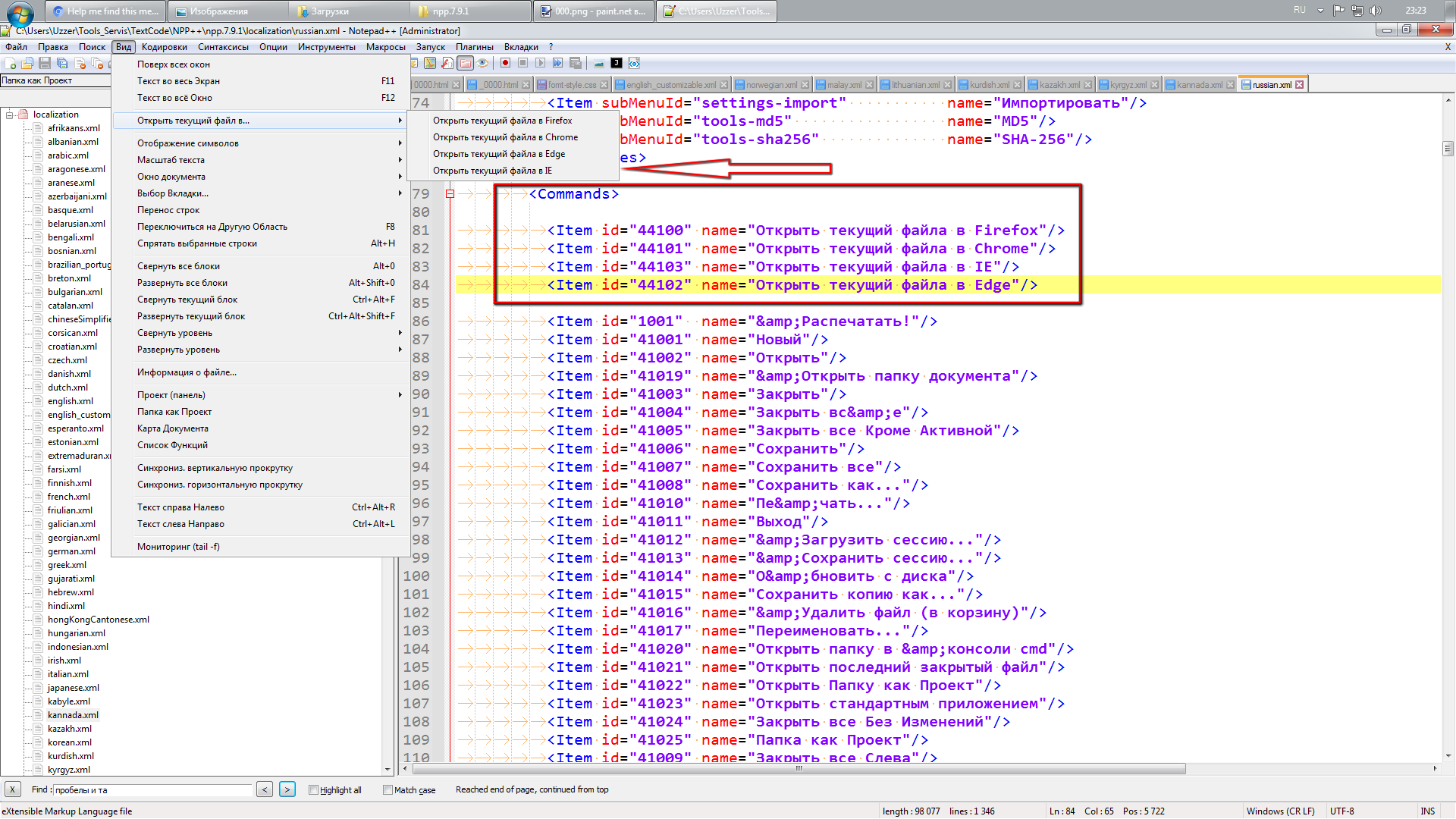
-
@andrecool-68 said in Help me find this menu "open file in browser":
There is no need to make additional lines, they are there but they do not work in all languages
I don’t know if the language barrier is hurting our communication again, but I disagree with that statement.
The
view-currentFileInline was missing from theesperanto.xml, which is why the submenu wasn’t translating. As soon as I added it, it did translate that entry. My assessment is that if theview-currentFileInline exists in the XML file, then it will translate the sub-menu’s name; if it is not present, the sub-menu will use the default “View Current File in” English text.


And, as I said, “I haven’t been able to translate the
Firefox/Chrome/Edge/IEstrings”. Said another way, the text in the items 44100, 44101, 44103, and 44102 do not appear to influence the four entries in the browser submenu no matter what, for any language I tried. My assessment is that you cannot translate the names of the browsers. This doesn’t seem like a bad thing to me, since it’s just a list of application names. -
@andrecool-68 said in Help me find this menu "open file in browser":
We need to put these lines in the <Commands> block
This must be done for all languagesAh, I see now that the entries for 44100 and similar that I was editing were in the
<ShortcutMapper>...<MainCommandNames>...section, not in the<Commands>section.
But again, I don’t think it’s important to translate the names of applications, and I am fine with the short names.If you think that Don should add those entries into the translation files for every language, you are allowed to fill out a feature request. If it doesn’t work in all languages, you are allowed to fill out a bug report. But as you know, mentioning something like that once or 100 times in this Forum is not the official way to file a request or bug report.
-
@PeterJones This is English localization
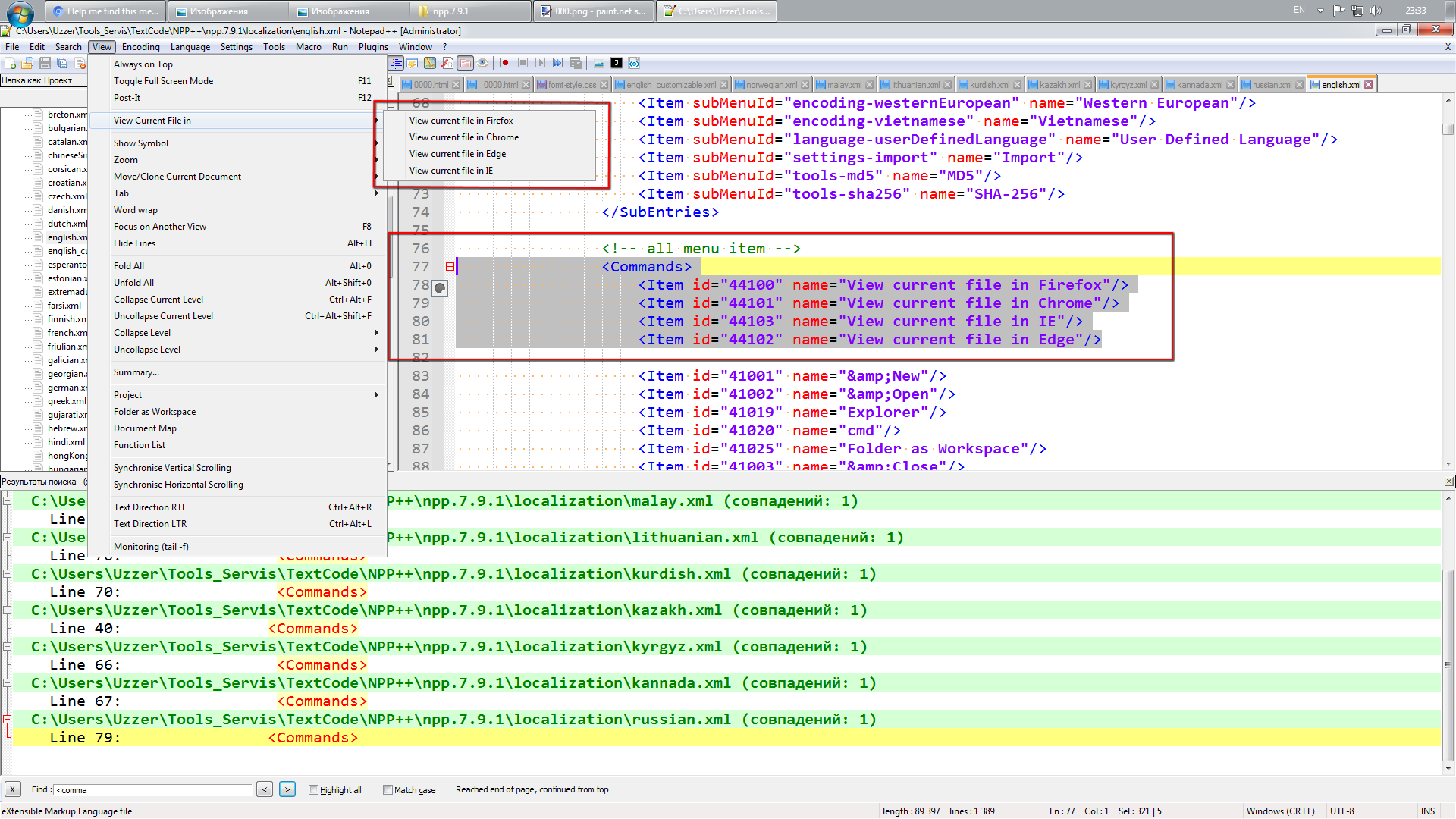
-
@PeterJones said in Help me find this menu "open file in browser":
the entries for 44100 and similar that I was editing were in the <ShortcutMapper>…<MainCommandNames>… section, not in the <Commands> section
I’ve done this once or twice myself.
VERY frustrating when what you’ve edited doesn’t go into effect.
Of course, our own fault.
But still… :-) -
@PeterJones No extra lines needed!
You just need to put these lines in the right place! -
@andrecool-68 said in Help me find this menu "open file in browser":
No extra lines needed!
No need to shout (exclamation points are usually considered shouting).
I respectfully disagree. See my reasons explained below:

Of the 93 localization files in a fresh unzip of v7.9.1, only 36 contain the
view-currentFileInline. So in the other 57, that line would have to be added.You just need to put these lines in the right place!
I disagree. The entries in the
<ShorcutMapper>section should stay in the shortcut mapper section. Do not move them; otherwise, it will not translate the lines I have shown here, from the Shortcut Mapper:
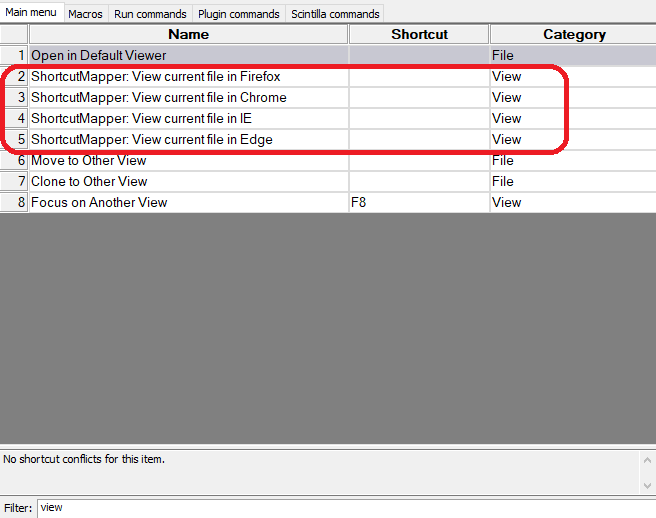
So, in 57 files, you have to add the
view-currentFileInline, which does not exist, otherwise the name of the submenu will stay in English.In any localization XML file that does not have the 44100 and similar lines in the
<Commands>section, you need to add them in that section. If you move them from<ShortcutMapper>to<Commands>, you will just change it so the menu does translate but the shortcut mapper does not. If you want both translated, you need both copies of the 44100 and similar blocks. -
@PeterJones I don’t think we understand each other at all.
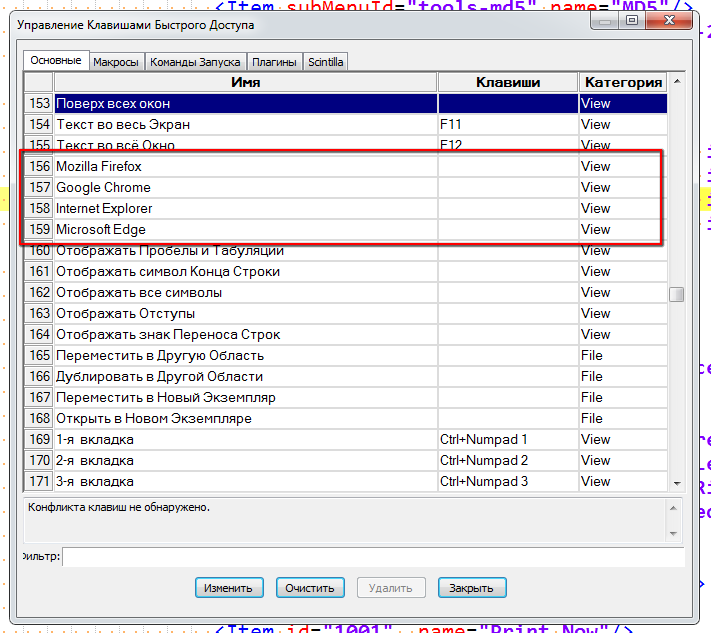
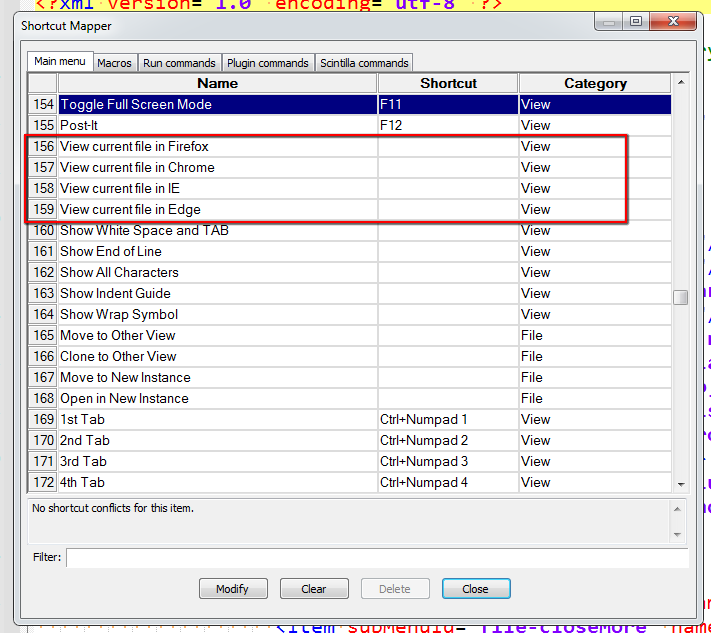
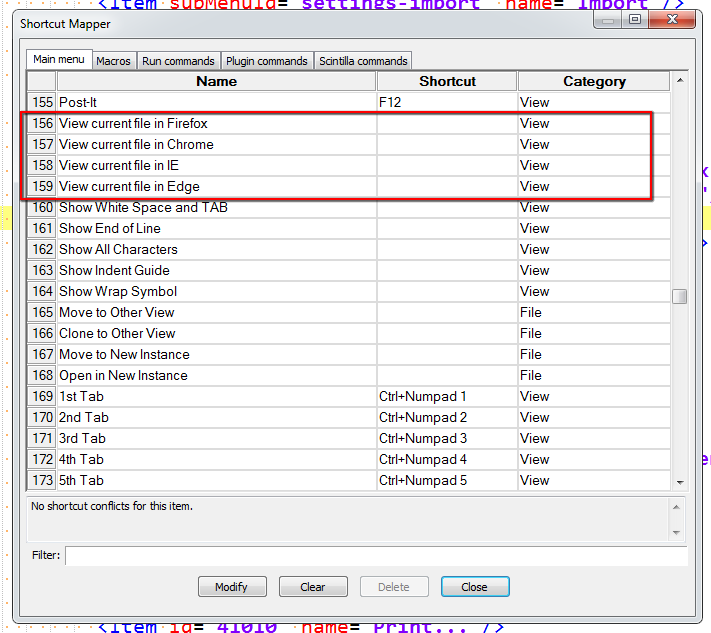
-
@andrecool-68 said in Help me find this menu "open file in browser":
I don’t think we understand each other at all.
I agree.
However, I am just going to drop it, because we both apparently understand how to make it translate both the menu entry and the shortcut mapper entry, even if we don’t like or agree with the way the other of us has tried to explain it.